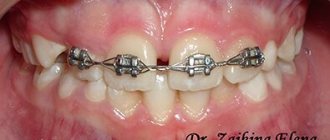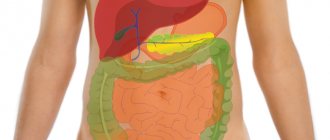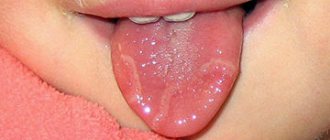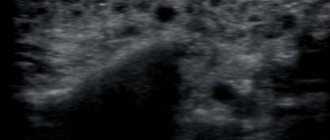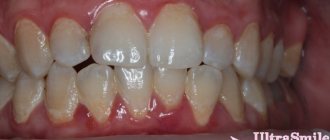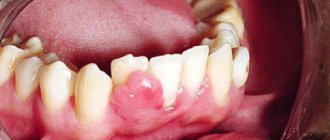Epilepsy (falling disease) is a fairly common pathology of the nervous system, the main manifestation of which is an epileptic seizure. An epileptic attack can be quite frightening and is characterized by loss of consciousness, the onset of seizures and, in some isolated cases, foam at the mouth. Sometimes it may take on a reddish tint.
To provide first aid, you do not need to have specific medical knowledge or skills. In most cases, the seizure goes away on its own; it is not necessary to call an ambulance. As a rule, a person who knows about his problems carries a note with the numbers of his relatives, friends, and information about himself, which may be useful to those who happen to be close to him.
However, people who want to help the victim should carefully perform first aid procedures, since the wrong procedure can cause serious harm to the patient.
People suffering from epilepsy should be regularly examined by a doctor, as the correct prescription of medications and constant monitoring of the disease reduce the risk of epileptic seizures. The Yusupov Hospital provides medical services from the best neurologists and epileptologists in the capital, who will select individual treatment for each patient.
Epilepsy and epileptic seizures are of completely different types and can manifest themselves in different ways. However, despite the variety, the attack always occurs suddenly. There are some signs by which you can determine an impending seizure, but this is not always possible. It is important for the person providing assistance to maintain inner calm and confidently carry out all necessary actions, since a person’s life is at stake.
Signs of an epileptic seizure
The mechanics of the occurrence of epilepsy has not been precisely clarified at the moment, but it is known that seizures begin against the background of intense stimulation of areas of the cerebral cortex due to increased electrical activity of nerve endings.
Signs of an attack, as a rule, vary from person to person, but there is a certain set of symptoms that helps determine the stage of the attack and immediately proceed to first aid procedures. Such crises cause great pain and stress to the patient, so after the seizure the victim must be handled very carefully.
Signs of an epileptic seizure include:
- sudden loss of balance, falling to the ground;
- loss of consciousness;
- nausea, vomiting;
- heavy breathing;
- muscle hypertonicity;
- inseparable loud shouting;
- a sharp increase in blood pressure;
- blood from the nose;
- involuntary throwing of the head back;
- “glass eyes”;
- increased salivation, sometimes with foam;
- loss of sense of reality of the surrounding world;
- disruption of the thinking process, misunderstanding of words or shouts of strangers;
- involuntary bowel movements or urination;
- local convulsions or convulsions of the whole body;
- numbness of the limbs;
- pupils stop responding to light;
- bluishness or redness of the face and other skin;
- very rapid pulse or its strong decrease;
- convulsions.
It is quite difficult to prevent an attack, but by certain indicators you can understand its approach and take the patient to a safe place.
Expert opinion
Author: Olga Vladimirovna Boyko Neurologist, Doctor of Medical Sciences
Doctors consider epilepsy one of the most dangerous neurological pathologies. This is because a seizure can occur at any time. This increases the risk of injury. Therefore, epilepsy requires timely diagnosis and treatment. The disease occupies a leading place in the structure of disability. According to statistics, 30% of patients are disabled people of group 1 or 2. In order to reduce the risk of injury during an epileptic attack, doctors have developed special first aid recommendations. Anyone can familiarize themselves with them.Doctors at the Yusupov Hospital diagnose and treat various forms of epilepsy. Modern European CT, MRI and EEG equipment are used for examination. This medical equipment allows you to quickly determine the localization of the pathological focus. The quality of treatment depends on the accuracy of the research. An individual therapeutic plan is drawn up by experienced neurologists and epileptologists. If you follow medical recommendations for the treatment and prevention of epileptic seizures, 60-70% of patients at the Yusupov Hospital achieve long-term remission.
Causes of occurrence and development
There are no immediate causes that can cause an epileptic seizure, but there are a number of risk factors that, under certain circumstances, can trigger an epileptic seizure. Risk factors can be either congenital or acquired.
Hereditary predisposition involves the special functioning of neurons and their tendency to spontaneous excitation. This feature can be passed on from generation to generation, but does not always manifest itself. Epilepsy with a hereditary predisposition can develop in the case of acquired provoking factors, namely:
- with cerebral hemorrhage or other cerebrovascular accidents;
- after traumatic brain injury;
- as a result of prolonged alcoholism, use of narcotic and psychotropic drugs, severe stress;
- with meningitis, encephalitis;
- for birth injuries;
- with a brain abscess or stroke;
- in the presence of aneurysms, cysts or adhesions in the brain.
Factors influencing the occurrence of an epileptic seizure are:
- poor sleep patterns;
- drinking alcohol, caffeine, taking any amount of drugs, antidepressants not prescribed by a doctor;
- refusal to take medications or undergo therapy;
- smoking;
- stress;
- changes in hormonal levels due to certain diseases;
- menstruation in women.
It is very important to understand: if an attack has begun, in no case should you give the patient any medications, especially those that are not prescribed by the attending physician. In such a situation, the process has already started, and any pills can only do harm. An attack, if it lasts no more than three minutes, should simply be controlled and not try to bring the person to his senses. However, if the attack lasts longer, it is important to call a medical team.
Doctors at the Yusupov Hospital work around the clock, so in case of complications after epileptic syndrome, you should immediately consult a doctor to avoid disastrous consequences. We will help our patients get out of any difficult situation.
Types of alcoholic epilepsy
Beer epilepsy
Beer drinks and other alcoholic substitutes are very strong provocateurs of epileptic conditions, since, in addition to alcoholic toxins, they contain a large number of other substances that poison the body.
Another danger of beer is drinking the drink in large quantities. Many people consider low-alcohol drinks to be harmless, so they consider it normal to drink liters of them. As a result, acute intoxication with toxins occurs, which can provoke an attack of epilepsy.
Acquired epilepsy from alcohol
Drunken epilepsy is an acquired disease that develops against the background of pathological changes that arise due to addiction. Epilepsy most often occurs after binge drinking, with sudden withdrawal of alcoholic beverages. Frequent attacks due to severe alcohol intoxication or a hangover lead to the disease becoming chronic. Then attacks can be observed even with complete sobriety.
Hangover epilepsy
Epilepsy after heavy drinking occurs when there is a sharp decrease in the concentration of alcohol in the blood. Most often this occurs in a hangover after prolonged use, when the level of the convulsive threshold decreases.
Provoking factors
Often, epileptic seizures occur from various “triggers” - situations that provoke an attack. This could be a bright flashing picture, a sequence of sharp sounds. There are cases where overly bright cartoon screensavers caused a negative reaction in children. The danger comes from flashing, rapidly changing images that overload sensitive systems.
If the attack is caused by just such a factor, then it is better to get rid of it at the first opportunity: turn off the TV, turn down the volume. After the attack ends, ensure that you stay in a quiet room with dim lighting. If you do not get rid of the triggers, they can provoke a series of repeated attacks, which will not be easy for the body to survive.
How to spot an impending seizure
It is impossible to prevent an epileptic seizure, but you can warn others about it in advance or ask for help if you suffer from epilepsy and feel an attack coming.
First comes the tonic phase, its manifestations are convulsions, loss of control over the situation, increased salivation, etc. As a rule, due to hypertonicity of the muscles, the legs remain straight, and the arms involuntarily bend at the elbows. Breathing becomes difficult and may stop for several seconds at regular intervals. Asphyxia causes the skin to turn blue, especially the lips.
The tonic phase lasts about 30-45 seconds, after which the clonic phase begins. The clonic period is characterized by alternating muscle tension and relaxation - convulsions and convulsive states. During this period, the person twitches randomly, bends in unnatural positions, but does not come to his senses. The patient may spontaneously bite his lips or tongue, which causes blood to appear in the saliva. During the period of complete muscle relaxation, the internal sphincters also weaken, which can cause bowel or bladder emptying.
A few minutes before the onset of epileptic syndrome, the patient may suffer from restlessness, increased anxiety, and may experience hallucinations of various types. There are several types of pre-epileptic conditions, so-called auras:
- speech aura – disturbance of sensory or motor functions;
- mental aura - a sudden, unconditional feeling of sadness, melancholy, increased anxiety, panic attacks, or vice versa, a sharp surge of energy and joy;
- vegetative aura – dysfunction of the executive organs: blood vessels, secretion glands and muscles;
- sensitive aura - distortions in the sensations of external stimuli, a feeling of extreme cold or heat, a disturbance in the sensation of one’s body;
- sensory aura - changes in auditory, olfactory and visual sensations.
It is important not to panic if you notice similar symptoms in yourself or someone nearby. You should calmly warn others about this and secure your location by removing all dangerous piercing or cutting objects, and also move to a safe place where you can lie down.
The round-the-clock reception of doctors at the Yusupov Hospital will protect patients in the clinic from complications after an epileptic seizure. We pay close attention to each of our visitors, guaranteeing high-quality treatment results.
Make an appointment
Getting rid of an unpleasant symptom
Stopping bleeding from the mouth can be very difficult. It is necessary to begin providing assistance after identifying the main cause.
For advanced forms of periodontal disease, surgical treatment methods are resorted to. Timely treatment of gingivitis and adherence to strict hygiene rules in the future guarantees patients the absence of the development of periodontitis and complications.
Helpful: Eucabal
If the cause of blood clots in the mouth is tuberculosis or cancerous tumors, treatment should be carried out by appropriate specialists - an oncologist and a phthisiatrician. If you feel worse, be sure to inform your doctor.
First aid algorithm
First aid for an epileptic seizure is extremely important, since incorrect actions can not only not help the victim, but also worsen the situation. If someone nearby begins to show symptoms of an impending seizure, you should prepare:
- find out whether the person has had epileptic seizures before;
- If a person has epilepsy, he must immediately take the pills prescribed by the doctor to block the seizure. At the same time, people nearby should not give the patient tablets of unknown origin;
- secure your location, move to a safe, uninhabited place;
- if the situation occurs indoors, it is necessary to open windows or doors to ensure the flow of fresh air;
- the patient's head should be placed on one side to avoid choking on saliva or vomit;
- provide the patient with a fall on a soft surface, place an additional soft object under the head so that the head is higher than the body;
- remove all potentially traumatic objects;
- remove belts, necklaces, hats and all things that can squeeze, cause discomfort and make breathing difficult.
Gastrointestinal bleeding
Blood from the mouth may be accompanied by vomiting
In some cases, vomiting accompanied by slight bleeding may indicate a burst vessel in the throat or esophagus. But most often bleeding indicates the following diseases:
- stomach or duodenal ulcer
- erosion of the mucous membrane of the stomach or esophagus
- liver cirrhosis in severe stages
Blood from the mouth may be a symptom of a serious illness
Bleeding occurring in the gastrointestinal tract is, in the vast majority of cases, caused by ulcers. Other causes that can provoke them are cancer, medications and some systemic diseases, such as atherosclerosis.
What to do if an epileptic seizure has already begun?
To begin with, it is worth remembering that panic and loss of self-control are factors due to which help during an epileptic seizure may be incorrect. You need to calm down, take a breath and begin to perform the following algorithm of actions:
- record the time of onset of the attack;
- if possible, place the patient with a rolled up soft cloth or any non-hard object between the jaws to avoid biting the lips or tongue;
- record the time of the end of the attack, this will help in the future when making a diagnosis.
It is important to stay close by until the symptoms go away completely. If there is no direct threat to life and health, then it is better not to actively interfere with the course of events. Excessive activity from those who want to help can often harm further well-being.
There are a number of erroneous actions that can cause significant harm to the victim.
Diagnostics
If the symptoms of pulmonary edema are not pronounced, additional studies are required in parallel with emergency care:
- biochemical screening. This is a blood test;
- study of blood gases;
- ECG, ultrasound of the heart;
- X-ray of the chest area;
- pulmonary artery catheterization.
In many cases, diagnosis of pulmonary edema is possible immediately - only based on the signs that appear visually in the patient and without additional examination.
What not to do
Doctors talk about several actions that should never be taken if you want to help.
Firstly, under no circumstances should you leave a person alone. During the tonic phase of seizures, the patient may stop breathing due to spasm of the airways. During the clonic phase, hitting your head on something.
Secondly, it is strictly contraindicated to try to restrain a person who is convulsing. The muscles are overstrained due to contractions, and excessive pressure on the limbs or spine will not lead to anything good, but will only increase the risk of damage to the muscle fibers or joints when it comes to the limbs.
Thirdly, there is a well-established stereotype that an epileptic needs to insert something between his teeth. Usually a spoon or keys are mentioned as a suitable item. But the facial muscles are no less tense than others, so an attempt to unclench the jaws can damage the teeth and result in a fracture of the lower jaw. This measure is also fraught with injury for those who want to provide first aid: the jaws are clenched with such force that the epileptic can bite off the finger with which they want to open his mouth.
The risk that an epileptic will bite off his own tongue is a harmful lie. This is a muscle like all the others. When she is in a state of hypertonicity, the likelihood of biting or sticking her tongue tends to zero.
Fourthly, it is very important not to give any medications to an epileptic, even if some medications are found in the patient’s pockets or bag. When under stress, it is easy to miscalculate the dosage, including that of a specially prescribed drug. You can also allow a situation in which the pill ends up in the wrong throat. If the medicine does harm, the person who wants to help will face criminal liability, even if he acted with the best intentions.
At the end of the attack, especially if none have been observed before, the patient should be taken to the clinic for further examination. Qualified doctors at the Yusupov Hospital are ready to provide assistance at any time of the day. Our doctors treat each patient responsibly and attentively, carry out all manipulations and examinations based on individual indicators.
Make an appointment
What to do after an attack
After an epileptic seizure, the patient needs peace and rest, since during an attack the body depletes resources and needs to be replenished. Before the ambulance arrives, provide the victim with complete comfort and psychological support. Try to rid him of all irritants and remain calm.
An ambulance should be called only if the seizure lasts more than 3 minutes, or if it recurs. Professional help is also necessary if during an attack the patient injures himself, is injured or suffocates. After an epileptic attack, the following steps should be taken:
- put the patient on his side and let him rest for a few minutes;
- if the attack happened in a crowded place, ask everyone to move away to ensure psychological comfort for the victim;
- if a person involuntarily empties his bowels or bladder, try to clean the area and remove dirty clothes;
- notify the patient’s relatives or loved ones about what happened, especially if he is a minor or an elderly person;
- do not leave the patient for at least another 15-20 minutes, since normalization of the condition does not occur immediately. Transport the victim home if he wishes.
It is important to understand that even the correct implementation of first aid cannot guarantee the absence of the risk of developing side complications. Immediately after an epileptic seizure, the patient should be admitted to the neurology clinic of the Yusupov Hospital, where the best neurologists in the capital will determine the diagnosis and prescribe concomitant treatment. Examinations in the hospital are carried out using modern European equipment, which allows you to obtain the most accurate results. Our medical staff is ready to provide first aid in emergency situations throughout the day.
Prevention measures
To prevent snoring, it is recommended to promptly treat respiratory infections and allergic reactions.
As general measures it is recommended:
- Avoid a sedentary lifestyle and do daily exercise.
- Avoid using antihistamines before bed.
- Do not eat food before going to bed.
- Avoid excessive fatigue.
- Sleeping preferably on your side is better than sleeping on your back.
- Place the headrest by raising the headboard.
When to call an ambulance
To provide first aid for epilepsy, it is not always necessary to involve doctors. As a rule, attacks are fleeting. There are cases when compassionate citizens called the ambulance crew, but by the time they arrived they had already left the scene on their own.
In addition, for some, such situations happen several times a day. With such options, it is enough to know the basic principles of providing assistance, and if everything proceeds without complications, you can cope on your own.
In some situations, the help of medical specialists is vital for a patient with epilepsy.
The attack happened for the first time in my life
You cannot be sure how the body will react if it has not experienced such overexertion before. It is quite possible that epilepsy is manifesting itself right now (this can happen at any age). However, there is a danger that a seizure is a sign of some disease, the exacerbation of which requires the intervention of appropriately qualified specialists.
The victim is a child or elderly
The bodies of children and the elderly are most vulnerable to critical changes in health. Even if everything goes as normal, only doctors will be able to give an accurate conclusion regarding the condition of the body and further health risks.
Cramps in a pregnant woman
A neurological disease can be fatal to a child in the womb. If a woman is late in pregnancy, there is a risk of premature onset of labor.
There is a possibility of injury
During seizures, the patient may hit his head on a sharp corner or be injured during a fall. Even if it just seems to you that there is a risk of traumatic brain injury or any other injury, it is better to call specialists and keep the patient in place until the doctors arrive.
The patient remains unconscious for more than 10 minutes
It is important to check the patient’s clarity of consciousness after an attack, to find out whether he remembers his name or home address. If he does not regain consciousness on his own, there is no need to “help” him: hit him on the cheeks or splash water. It is also forbidden to try to bring people to their senses using such means as ammonia: any strong odors can provoke a second attack, which, compared to the one just suffered, can cause significant harm to health.
Epilepsy always carries the risk of irreversible changes in brain structures. If a person breathes but does not regain consciousness for more than ten minutes, it is important to organize professional medical assistance as soon as possible.
Make an appointment
Aggression in dementia
Experts often say that people with dementia live in their own universe. They have their own rules and laws. Often a calm, balanced person throughout his life becomes embittered and aggressive under the influence of the disease. It is strictly forbidden to leave small children in the same room with elderly people suffering from dementia. They are not aware of their actions and can harm a child who is unable to defend himself.
The most surprising thing is that aggression can appear suddenly; at any moment, loved ones must be prepared for an outbreak. Patients make scandals, rush into fights, throw objects, break dishes, may bite, pinch or grab
the hair of the person nearby. It is very difficult for loved ones to maintain emotional contact with such patients. All attachments and feelings for a loved one are erased under the influence of constant inappropriate behavior. What to do with aggression in senile dementia, and how to explain to neighbors that no one is bullying an elderly relative?
First of all, you need to remember that aggression can be a signal of some kind of discomfort that the patient is experiencing. These could be problems with physical well-being, psychological trauma, or everyday inconveniences. A man screams and fights to get attention. Anger often manifests itself while taking medications. In this case, you need to consult your doctor and discuss the possibility of replacing the drug with an analogue.
As for neighbors, there is no need to hide the diagnosis of a loved one from them. During walks or short visits, they themselves will be able to assess the patient’s condition and understand that relatives are not mocking him, but are themselves victims of his inadequate condition.
Basic rules of behavior when a patient has an outburst of anger:
- Don't show fear;
- Take a step back (move away as much as possible, but so as to see the patient);
- Listen and try to calmly console;
- Transfer his attention to another issue;
- Do not respond with anger and do not punish the patient.
There is no need to keep negativity to yourself. If there is someone who is able to listen and give advice, it is better to call such a person and talk it out. Internal tension that does not find relief will lead to problems of a psychosomatic nature.
Treatment
At the Neurology Clinic of the Yusupov Hospital, clients can count on several treatment methods. In particular, we are talking about drug therapy and neurosurgical technologies. By skillfully combining these techniques, doctors achieve a significant improvement in the condition of their patients and provide them with the most comfortable life possible with this pathology.
It should be understood that epilepsy is not a death sentence; people with this disease can live a normal life, limiting themselves to virtually nothing. To do this, you need to regularly undergo the necessary examinations, see your doctor and take prescribed medications. Doctors at the Yusupov Hospital take care of their patients, regularly ordering examinations and prescribing medications only based on the individual indicators of each patient.

